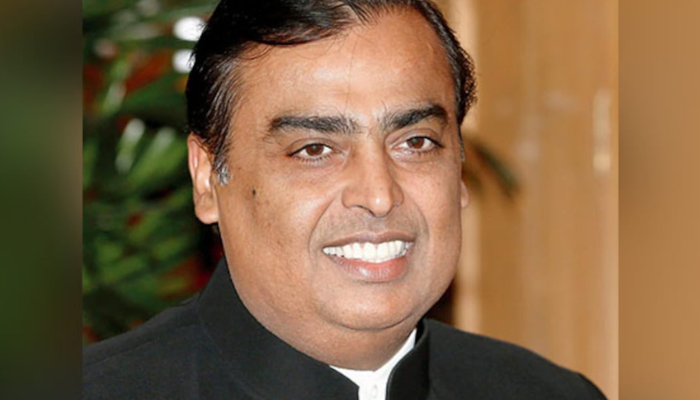Gujarat, India, is leading the way in sustainable development and environmental protection. The state has recently signed a Memorandum of Understanding (MoU) with the Indian Ministry of Environment, Forest and Climate Change to introduce a carbon market to the region. This move will help the state achieve its goal of reducing carbon emissions by 20-25% by 2030.
Background of Carbon Markets in India
India is a large and rapidly developing country and has been making strides in the fight against climate change. In the past few decades, the country has made huge investments in renewable energy and moved away from more polluting energy sources. Gujarat signed a Memorandum of Understanding (MoU) with the International Carbon Action Partnership (ICAP) to further this effort to develop a carbon market. This will be the first such market in India.
The concept of a carbon market is to create a market-based system for reducing emissions and limiting the effects of climate change. This is done by setting a cap on carbon dioxide emitted and allowing companies to buy or sell carbon credits to meet their targets. Carbon credits are tradable and can be bought and sold in a carbon market.
The carbon market in Gujarat will be developed in collaboration with ICAP. This international organization promotes the voluntary use of emissions trading and other market-based instruments to reduce emissions and climate change. The MoU will allow Gujarat to access the unique expertise, capacity, and networks of ICAP to develop and operate the carbon market.
The move is a positive step for India and Gujarat, as it will help the state meet its commitment to reduce emissions and encourage businesses to lower their carbon footprints. This could have a significant impact on India’s emissions in the future, as well as encourage the development of other carbon markets in the country.
The MoU between Gujarat and IFC
The MoU between Gujarat and International Finance Corporation (IFC) is a major step towards developing a Carbon Market in India. The MoU was signed at the Global Climate Action Summit in San Francisco in September 2018. The agreement will help the state of Gujarat develop a carbon market, enabling the state to reduce greenhouse gas emissions while also helping improve the economy. Under the MoU, IFC will provide technical assistance, capacity building, and other services to Gujarat to develop a carbon market.
The MoU will also enable the state to access international funding to develop the carbon market. The MoU will help Gujarat achieve its commitment to reduce emissions by 30% by 2030 while also helping to promote economic growth. The MoU is an important step towards a sustainable future and will help the state become more climate resilient.
Gujarat’s Initiative on Developing Carbon Market
Gujarat has taken a major step in developing the carbon market by signing a Memorandum of Understanding (MoU) with the Carbon Disclosure Project (CDP), an international non-profit organization. This MoU will help the state develop a carbon market and enable it to lead India’s transition to a low-carbon economy. Under the MoU, CDP will provide technical guidance and support to Gujarat in developing a carbon market and help set up a carbon monitoring system in the state.
This will enable Gujarat to track its carbon emissions, identify sources of emissions and take measures to reduce emissions. This initiative will also help the state to move towards a low-carbon economy and to meet its commitments under the Paris Agreement. With this initiative, Gujarat will be the first state in India to implement a carbon market and will be a role model for other states. This initiative is a significant step towards ensuring a more sustainable future and achieving environmental goals.
Advantages/Potential of Carbon Markets
The potential of carbon markets in Gujarat is immense. By signing the Memorandum of Understanding (MoU) with the United Nations Environment Programme (UNEP), Gujarat has taken a positive step towards developing carbon markets and fostering a low-carbon economy. Carbon markets provide opportunities to reduce greenhouse gas emissions while also providing financial benefits. Carbon markets can help to reduce emissions from direct sources, as well as from indirect sources such as electricity generation or transportation. Carbon markets can incentivize the adoption of cleaner technologies and establish carbon pricing mechanisms to account for emissions’ environmental and social costs.
By setting a price for emissions, carbon markets can provide an economic incentive for businesses to reduce their emissions and invest in more sustainable practices. In addition, carbon markets can create new markets for carbon offsets, allowing the private sector to invest in projects that reduce emissions. These projects can provide additional economic benefits to the community while helping to reduce emissions. The potential of carbon markets in Gujarat is huge, and the MoU will help ensure that the state is well-positioned to take advantage of its opportunities.
Challenges and Criticism
Gujarat has recently signed a Memorandum of Understanding (MOU) with the International Carbon Action Partnership (ICAP) to develop a state carbon market. This is a positive step forward in the fight against climate change but has also been met with challenges and criticism. One of the main criticisms is that the carbon market could increase power prices for consumers, as companies will be incentivized to purchase carbon credits to reduce their emissions.
The carbon market may not effectively reduce emissions, as compliance costs are often too high for many companies. Furthermore, the carbon market could increase profits for large companies and corporations, while small businesses and individuals could be left behind.
Finally, there is also the concern that the carbon market could lead to a “race to the bottom,” as companies would be incentivized to purchase credits from countries with the lowest carbon prices. Despite these challenges and criticisms, Gujarat’s decision to develop a carbon market is a step in the right direction for the fight against climate change.
Conclusion
Signing the memorandum of understanding between Gujarat and the World Bank to develop a carbon market is a positive move for both. It will help Gujarat reduce its carbon footprint and benefit from the carbon credits it earns while incentivizing others to reduce their emissions. This is an important step towards creating a sustainable future, and Gujarat should be commended for leading the way. The success of the carbon market in Gujarat will depend on how well it is implemented and how well it is monitored. With the support of the World Bank and other local and global organizations, Gujarat can be a shining example of how to reduce emissions and create a more sustainable future.





















Comments